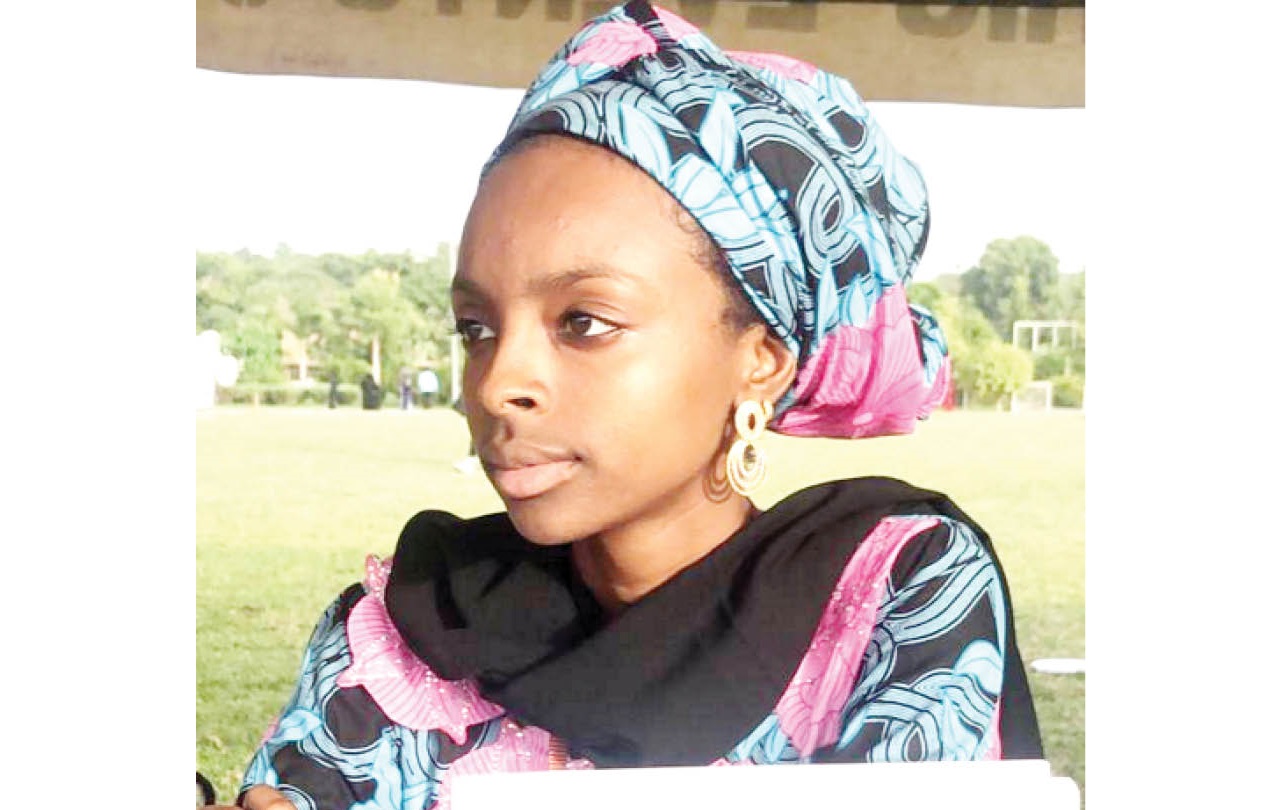Aisha Tahir Ali is a 400-level student at the Nile University of Nigeria in Abuja. The Public and International Law student self-published a poetry book titled, ‘Beyond Constellations: An Explanation’ which she launched on May 29, 2021.
In this interview, Aisha speaks more about the book which she said is a compilation of her poems when she started her poetry quest in 2016.
- COVID-19: ‘How delta variant spreads rapidly in communities’
- Vigilantes to lead fight against bandits in Sokoto – Tambuwal
Could you tell us about yourself and the project?
I started writing poetry in late 2016 when I was in secondary school with a few friends just for the fun of it, we haven’t stopped since, and now it’s more serious than ever. “Beyond Constellations” is a compilation of poems relating to my mental health and journey from being a teenage girl to growing into an adult. I wanted to publish the book as a teenager just so it stays authentic as being “a teenager’s perspective”.
What triggered your interest in poetry?
I was in pain. As a teenager, I felt dismissed. I knew things were not going how I wanted them to be. I was frustrated, angry, and filled with pent-up emotions I did not know how to handle. I was fortunate enough to have something good to fall back to, to try and get rid of all the emotions and that was writing short stories and I found poetry on the way.
I feel like there is no other way to define my book but pain. It tries to point to mental health issues like depression, anxiety, and suicide. It feels like our parents are trying to tiptoe around that topic, but Alhamdulillah we are ready to start that conversation where needed and find a way out.
My motivation is also drawn from having friends that I could share what I love with. To be able to grow together with people who understand the basics and work that needs to be put in to write makes it easier to want to do it forever.
What’s the story behind your project?
I struggled and still struggle with communicating my emotions with the people around me. The beauty of poetry is that I could write down my feelings without it using the layman’s language. I felt like the people around me didn’t quite understand me so I tried to explain myself through my writing. The sub-title of the book is “an explanation” to point to the fact that I’m trying to explain myself and give answers to all the questions I felt like I wasn’t able to give the answers to.
What have you done differently from what has been done in poetry?
Everything. I did everything myself. (Except for every other thing I didn’t do myself) I didn’t publish my book the traditional way. I self-published it – I compiled my works and chose the ones that worked with my vision. Sent it to a few friends and just kept editing and editing and editing.
My mentor helped me do the final editing (she’s qualified). Friends helped me with getting the book out there and making sure I wasn’t slacking. And I had faith that people would pre-order the book so I would be able to pay for the printing. And it did work.
A few other friends came and helped me package the book and till now, I have so many amazing people helping me with marketing it out there.
So what I did differently was that I believed in the people around me, my friends in particular. I didn’t ask any adult for help (except for my mentor) and we (the teenagers) made it happen.
How did you manage the pressure of the project?
It was exhausting and frustrating. I cried more days than the days I cheered. But it was worth it. I knew I was doing something I believed in, and that made it worth it.
How many people are you targeting to engage with this project?
With the book, it would be over 100! If it’s about media companies, I have engaged three people at the moment. But I’m hoping to get more coverage because I’m looking towards having a book launch next month.
How would you sustain this afterwards?
With the success of the book launch, I’ll raise a real marketing team that will continue to get the book out there and hopefully internationally.
What is your advice to youths on finding prospects in writing?
My first advice will always be to not stop writing, just write and dream big, as big as you can dream so that even if you’re not able to achieve that big dream, on your way to making it possible, you’ll achieve some impossible things. And create your way; you don’t always have to go with the crowd. Make it possible, the way you can.

 Join Daily Trust WhatsApp Community For Quick Access To News and Happenings Around You.
Join Daily Trust WhatsApp Community For Quick Access To News and Happenings Around You.


